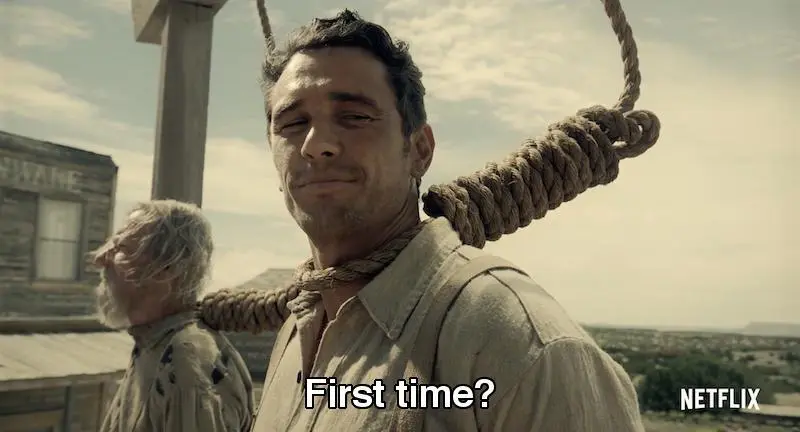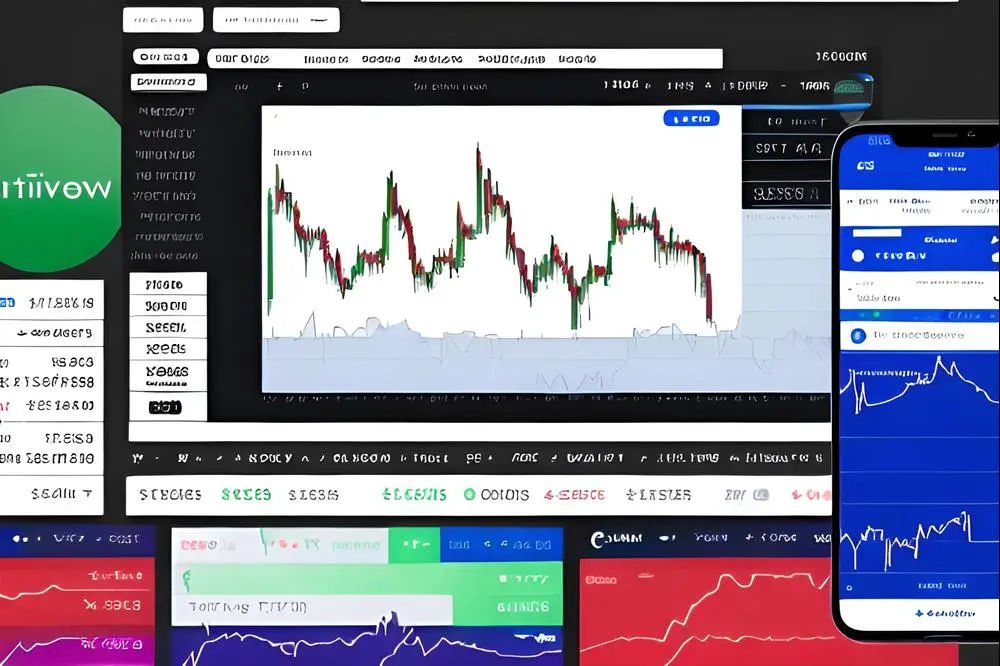Why This Time is NOT Different
Advice for first-time crypto founders on surviving the bear market

If you're a founder who recently raised money for a crypto project, the collapse of FTX and the overall crypto market might have you feeling a little freaked out-- especially if it's your first time. You might be wondering: Is crypto dead? When will the bear market end? What if it never ends?
Well, the truthful answer is that nobody can predict the future-- but having lived through three cycles at this point, starting in 2012, I can at least share my perspective as an entrepreneur on why I think this cycle actually feels much less severe than previous ones. And why "this too shall pass," possibly sooner than you might think!
Listen, Kiddo... We've Been Through Much Worse
First, it's useful to understand just how bad the previous crypto apocalypses were. Let's put things into perspective shall we?
In 2013, Bitcoin was the only game in town and Mt. Gox was the only exchange in town, basically. The only use case for crypto was the Silk Road, and your one druggie friend was the local campus evangelist, if you even had one. There were no institutions, almost no builders, and no relatives were calling you to ask about crypto.
Then Mt. Gox collapsed and the Silk Road got raided, which meant the only access point for Bitcoin and the only use case was completely nuked.
Yes there were other little exchanges cropping up, like this one called Coinbase, and yes there were other coins starting to pop up too, like this Litecoin and Dogecoin thing. But they were so small at the time that it would have been crazy to think crypto could come back from that. And besides, all we were seeing were derivatives of Bitcoin-- where was the true innovation? The killer app that was going to take things mainstream??
Flash forward to 2017, and the diehards like Vitalik, Zooko Wilcox, and Brian Armstrong who continued to iterate through the bear market produced innovations with earth-shaking potential:
- Programmable money via Ethereum
- Privacy coins via ZCash and Monero
- An exchange that actually worked (kinda)
- Fiat-backed stablecoins via USDC
It looked like crypto was finally going to be a thing. This is when I entered the space full-time, and swore to myself I'd never underestimate crypto's potential again. Every other time I'd underestimated something like AI or VR, I'd been right-- but crypto literally shocked me with what it produced while I went to "sleep" from 2013 to 2016.
Sadly the 2017 bull market also came to a spectacular end in late 2018 when the SEC announced that it was basically going to go after every listed coin on the planet. This then caused a price crash the likes of which nobody had ever seen, with Bitcoin going from 20k to 4k basically overnight. Not even the cryptokitties were safe!
Something people take for granted about this crash is that it was caused by a major structural issue for crypto: Because of the SEC's vigorous saber-rattling, centralized exchanges literally froze listings for over a year, with no end in sight, and decentralized exchanges didn't really exist (0x and others based on it had centralized order-books and were conservative about whitelisting listings same as fully-centralized ones). So as a crypto founder, you had no path to launching your coin, which almost everybody in the space had built their business model around.
Can you imagine Solana running without its token being trade-able anywhere? Can you imagine Compound pioneering yield farming without its token being trade-able either? All of these things seemed completely off the table when the SEC went ballistic in 2018. At least with everyone I talked to.
Flash forward to 2020. Uniswap v2 launches, enabling efficient on-chain token trading for the first time. It's difficult to overstate how important this was for the crypto space. It was not only a super clever model from a technical standpoint, but it also suddenly revived a large class of business models that everyone thought were dead (namely anything with a coin suddenly worked again).
After Uniswap v2, Compound launched an extremely innovative concept called yield farming, which incentivized people to provide collateral for on-chain lending, thus creating a whole new category of on-chain lending activity that most people didn't even think was possible.
Centralized exchanges went back to business as usual, with even Coinbase racing to list everything under the sun, and "DeFi Summer" in 2020 kickstarted a wonderful and vibrant bull market that lasted until early 2022.
Other innovations few people expected also became popular:
- NFTs (I honestly didn't see this one coming!)
- "Fast" Layer-1s ala Solana, Avalanche, etc...
- Crypto-collateralized stablecoins like MakerDAO
- Algorithmic stablecoins like Terra/Luna (sorry about that one)
- Perp swaps
- Layer-2 solutions
- "Play to Earn"
- Infinite-state blockchains like DeSo, powering on-chain money-enabled Twitter apps like Diamond
- And many other things I'm probably forgetting...
Importantly, though, in both the 2013 crash and the 2018 crash, the core crypto infrastructure seemed dead. In the first case, the only centralized exchange collapsed, and in the second case, all token listing came to an indefinite halt.
How Does This Cycle Compare?
Well, for starters, losing FTX is nothing compared to losing Mt. Gox in 2013. And it's nothing compared to the SEC wiping token listings completely off the table for an indefinite period of time in 2018.
Not only are there literally hundreds of other exchanges to choose from today, but on top of that there is an entire on-chain ecosystem that has continued to function extremely well in spite of all of FTX's issues.
Anyone who raised money to build something interesting in crypto has virtually zero pivoting to do. Yes their valuation is probably lower now, and they will be launching into less retail demand if they were to launch during the bull, but nothing has structurally changed about their opportunity.
For this reason, I cannot overstate how much bleaker things looked for entrepreneurs in the 2013 and 2018 bear markets vs today.
OK But What About Interest Rates?
One criticism one could make about this bear market vs previous ones is that this is the first bear market where interest rates have been materially non-zero. This is because non-zero rates tamp down on speculative investment activity. This is particularly relevant to anyone who was building use-cases reliant on speculation or trading, and it matters if one cares about overall crypto market prices in general.
Of course, I will say again, that nobody really knows what's going to happen. But I can give you several reasons why I personally am not concerned about higher rates:
- First, I don't think high rates will last forever. It might be a year or two, but at some point the Fed is going to pivot. When that happens we're back where we started, only there are way more people in the space with way more real use-cases to work on than in previous bulls. If anything, I would argue that rates being higher now sets up a perfect catalyst for the next bull (not even considering the Bitcoin "halvening" in 2024).
- Even if higher rates last forever, all it takes is one really big imagination-capturing use-case to bring everybody back in, treasuries be damned! For example, it could be some twist on NFTs, DAOs, or Creator Coins V2-- but it could also be a host of "decentralized social" use-cases I'll be writing about in my next blog posts. The point is that the floodgates for crypto are open now, and there's over $500 billion in crypto money that is never going back to the traditional system no matter how high rates go.
- Worst-case, we'll just have to figure out how to build retentive use-cases without relying on truckloads of easy money piling in. For what it's worth, I don't think speculative demand is going to subside that significantly. But even if it does, you have to believe that crypto has potential beyond "pure speculation," which is not much different than believing that there is more than "just Bitcoin" in 2013 (in fact, I find it to be much easier to believe the former...).
At the core, though, is the simple fact that there is more to do in crypto than there has ever been in the past. Nobody knows what the next killer use-case is going to be, just like almost nobody saw on-chain lending or NFTs coming this cycle. Interest rates don't fundamentally impact crypto's prospects if one remains optimistic about the inherent potential of the tech.
Bears Hibernate
At minimum, even if I've convinced you that the bull will return eventually, you still need to survive the bear market long enough to hit the next bull (and ideally build as much useful stuff as you can in the meantime).
This means cutting expenses to guarantee that you'll have enough money to fund at least a couple years of iteration. Once you've assured that, though, understand that the pressure to find a hit immediately is not as high. Getting to "ramen profitability" is totally doable in a bear market, but hitting "rocket-ship growth" is harder, and so it's OK to take a deep breath and think for a minute.
Bulls are frenetic and fast-paced, and every moment you're not shipping feels like a lost opportunity (because it probably is). In contrast, bears are quiet and (usually) peaceful.
Don't be ashamed about taking time to reflect and really think about what to build next. If you think hard enough, you might just launch the thing that kicks off the next bull, similar to how Uniswap, Compound, and OpenSea kicked off the last one together (among others).
In my next posts, I'll be giving away several ideas, business models, and growth hacks that I think have the potential to trigger the next bull, irrespective of the macro environment. Stay tuned!
Parting Words of Advice
With all the above being said, it's important to understand that bear markets usually separate the true believers from those looking to make a quick buck. The reality is that if your heart is not in crypto, then no amount of argumentation will be able to convince you that it is worth trucking through the bear. If you don't deeply believe in either your ability to produce a hit product in the space, or in the idea of self-sovereign digital money, it's going to be a lot harder to stay focused on crypto.
Put another way, the easiest way to stay motivated during the bear is to work on something that you believe is important and fun to work on even if the likelihood of failure is very high. I feel this way about DeSo, but this advice is generally-applicable to entrepreneurs, even outside of crypto.
Ultimately, though, I believe very strongly that those who stay in the game and double down now will be heavily rewarded when the bull finally returns, and will emerge from this bear triumphant, as invincible Titans.
You have an opportunity to be one of those people. All you have to do is focus and stay in the game!



